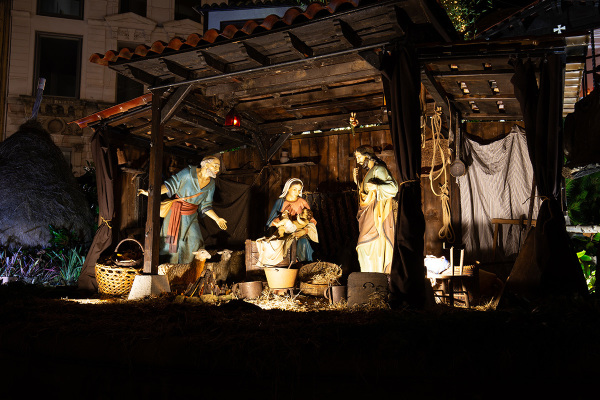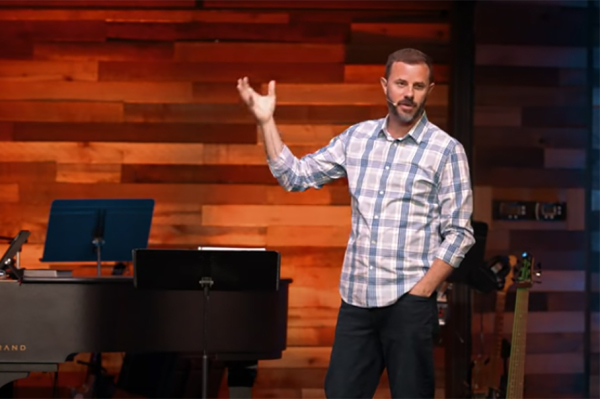Secular Scholars Back Christian 'Jesus Tomb' Arguments
WASHINGTON – Prominent non-Christian experts, using many of the same arguments as Christian scholars, have dismissed recent claims of the discovery of Jesus’ family tomb as a publicity stunt without scientific backing.
In the new documentary, “The Lost Tomb of Jesus,” award-winning film makers James Cameron and Simcha Jacobovici provide a seemingly compelling argument that ossuaries (boxes used to contain human bones) with inscriptions of “Jesus son of Joseph,” “Judah son of Jesus,” Mary Magdalene, and Matthew are part of the family tomb of Jesus Christ.
The film’s claims, if true, could challenge some Christians’ belief in the bodily resurrection of Jesus from the dead.
Yet leading secular archaeologists, without a religious motivation, are giving the same arguments as Christian scholars why the film’s claims are false.
One of the first heard arguments from the Christian arena was that the names etched on the ossuaries are extremely common place.
For example, the name Mary was the most popular female name during that time and place, while the name “Jesus” was popular in the first century and appeared in 98 other tombs and on 21 other ossuaries, according to Dr. Ben Witherington, New Testament professor at Asbury Theological Seminary.
A retired archaeology professor at the University of Arizona has also emphasized the commonness of the names found on the ossuaries as reason not to take the purported new discovery serious.
“I’ve know about these ossuaries for many years and so have many other archaeologists, and none of us thought it was much of a story,” said William G. Dever to The Washington Post, “and none of us thought it was much of a story, because these are rather common Jewish names from that period,” he said.
Dever has worked on ancient sites in Israel for 50 years and is regarded by many as the leader of biblical archaeology among U.S. scholars.
“It’s a publicity stunt, and it will make these guys very rich,” he added, “and it will upset millions of innocent people because they don’t know enough to separate fact from fiction.”
Another archaeologist – Jodi Magness of the University of North Carolina at Chapel Hill – questioned why Jesus, who is known to come from a poor family, would be found in a tomb for middle class and wealthy families.
Moreover, she noted that if for some reason his family could afford the tomb, his bones should be found in Nazareth not Jerusalem, according to the Washington Post.
What Magness found illogical about the Jesus tomb claim echoes what Dr. Albert Mohler, Jr., president of Southern Baptist Theological Seminary, said on CNN’s Larry King Live Monday night.
“You’re talking about a poor, peasant family from Nazareth with an ancestral heritage in Bethlehem,’ said Mohler. “There’s no logical reason why their bones should end up in a middle class tomb in Jerusalem.”
Magness also said the vast majority of archaeological scholars specializing in the time period have “flatly rejected” the idea that the tomb found in Talipot, Israel, could be Jesus’ family tomb.
“This whole case [for the tomb of Jesus] is flawed from beginning to end.”
Other arguments given by leading biblical scholars opposed to the film’s claims include that the earliest followers of Jesus did not call him “Jesus, son of Joseph” and the body of James, the brother of Jesus, was buried alone near the temple mount - making it highly unlikely that the tomb in the film is Jesus’ “family tomb.”
“In light of all the incredible number of problems with the recent claim that Jesus' grave has been found, the time-honored, multi-faceted evidence for the bodily resurrection of Jesus is more convincing than ever," said Dr. Gary Habermas, an expert on the resurrection of Jesus at Liberty University and author of The Case for the Resurrection, in a statement.
"Even the early opponents of the Christian message acknowledged that Jesus' tomb was empty. And the evidence for Jesus' bodily resurrection appearances has never been refuted."





















